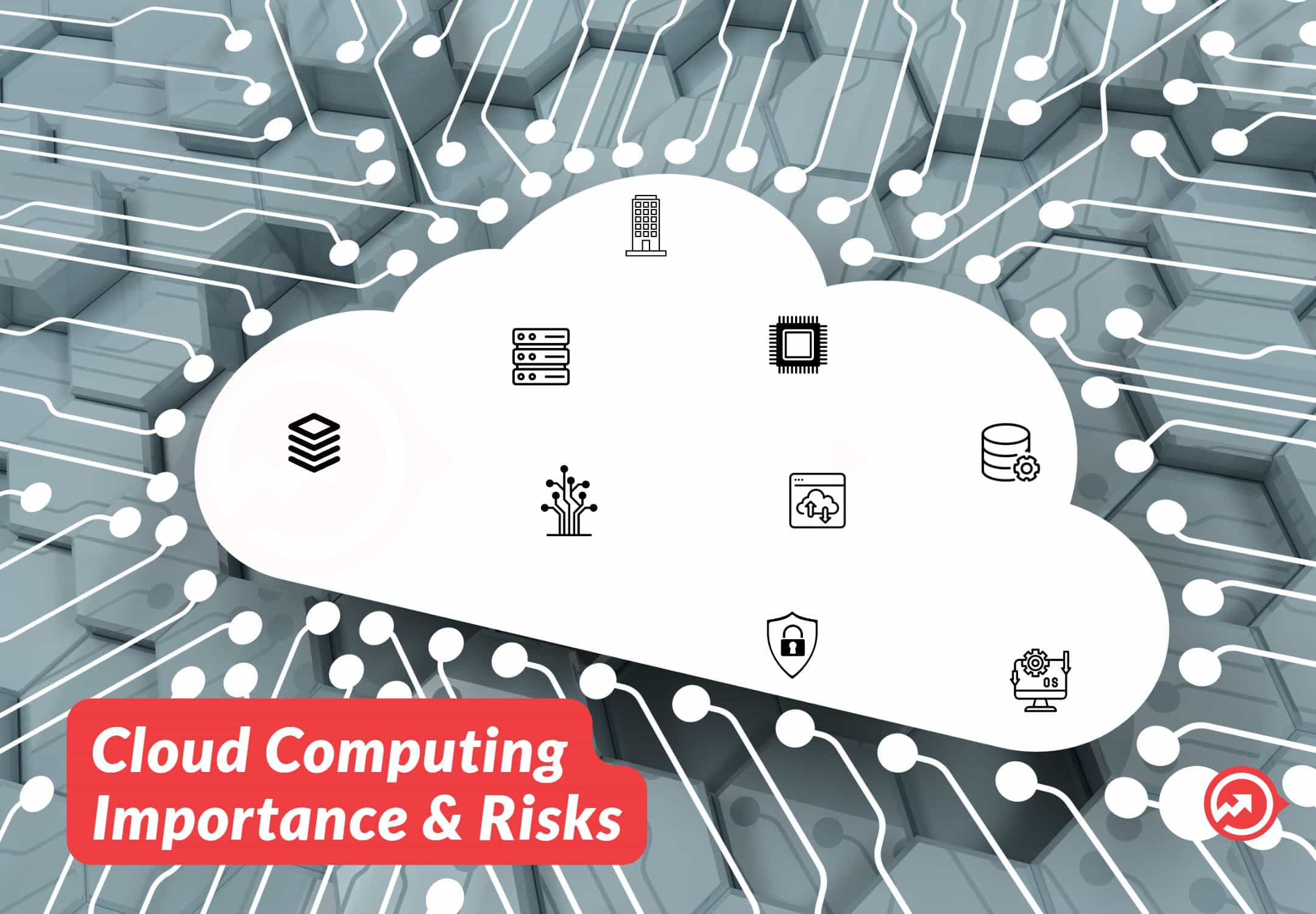As organizations transition to cloud servers for their development, testing, communication, storage, and other software application needs, it is crucial to discuss the benefits and risks involved.

Cloud computing has changed the way you look at IT resources, and below are a few reasons for shifting organizations to cloud computing services:
- Cost Savings: Setting up Data centres are expensive, and with cloud computing, you can eliminate the cost of buying and managing IT Hardware and software. With cloud computing, you can pay for what you use.
- Scalability/Elasticity: Due to cloud computing elasticity, about 80% of businesses found it easier to scale up or down based on their business growth. In cloud speak, this refers to managing IT resources such as more or less computing power, storage, database, and network bandwidth from the right geographic location. Cloud computing has truly revolutionized the way businesses can manage IT resources.
- Mobility: Cloud computing allows access to data on any device with an internet connection.
- Increased Productivity: Onsite Data centres require a lot of managing IT Management tasks such as hardware/software installation, patching software updates and other Time-consuming IT tasks. Cloud computing has many accelerators to enable the rapid implementation of solutions so you can focus more on business objectives.
- Reliability: With cloud computing, you can mirror data at multiple redundant locations on a cloud network, making it easy for data backup and data recovery, improved fault tolerance and business continuity.
- Security: The primary concern of any organization is keeping the data safe, and certain industries, such as healthcare, Pharma, Defense etc., are highly regulated and need to follow strict regulatory/compliance requirements. Many cloud network providers dedicate vast amounts of resources to developing advanced security protocols and employ stringent security, compliance, and data protection standards.
- Speed and Performance: Most Cloud Network Providers run on the latest cutting-edge next-generation of fast and efficient computing hardware and software and allows access to different data centre location. In comparison to the single on-site data centre, this is advantageous in performance by reducing network latency and improving performance overall.
There are always risks associated with any solution; thus, it is crucial to understand and manage them. The following risks need to be considered before selecting the best cloud computing provider:
- Cloud Solution Partner: This is your organisation's first and foremost decision because they will assist you in setting up and mitigating the other risks. Choosing an experienced and efficient solution partner is not only essential, but it will also pave the way for the growth and expansion of your company.
- Data Security and Privacy: This is the biggest challenge for any organization to consider while adopting a cloud computing provider. To ensure you are safe from data breaches, make sure the provider implements the latest security protocols, and your IT Team implements safe and secure Identity Authentication, Management (IAM), and access controls.
- Disaster recovery: Natural disasters are unpredictable, so it's imperative to look through the cloud provider's SLA to see how their support you and choose the geographic location of your cloud network, keeping this in mind. It's equally essential your organization plans for such contingency.
- Cloud Server Uptime: An interruption in the cloud provider's network could substantially impact your business losses because your data is stored in the cloud and accessible online. Hence make sure your cloud provider's uptime is the best.
- Internet Connectivity: You need a robust internet connection because you can access all of the data (including images, audio, and video) in the cloud. So keep this in mind when choosing an internet service provider and a cloud service provider.
- Vendor Lock-in: One of the drawbacks of cloud computing is vendor lock-in. Transferring an organization's services from one cloud provider to another could be challenging because different vendors offer various platforms.
- Compliance:Each country and business domain (primarily healthcare, government, etc.) has specific compliance requirements to be followed in handling their data. The increase in cyberattacks only strengthens these standards. The cloud provider must comply with these regulations depending on the domain and country. And if they don't do it, they risk consequences that could damage their reputation, cost them money, pay hefty fines, and lose the faith of their clients.
